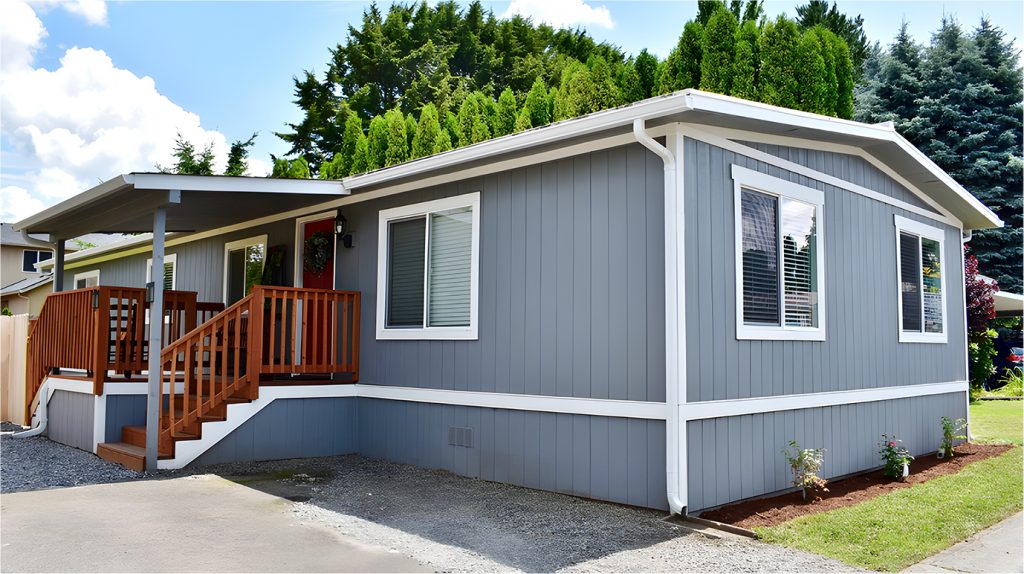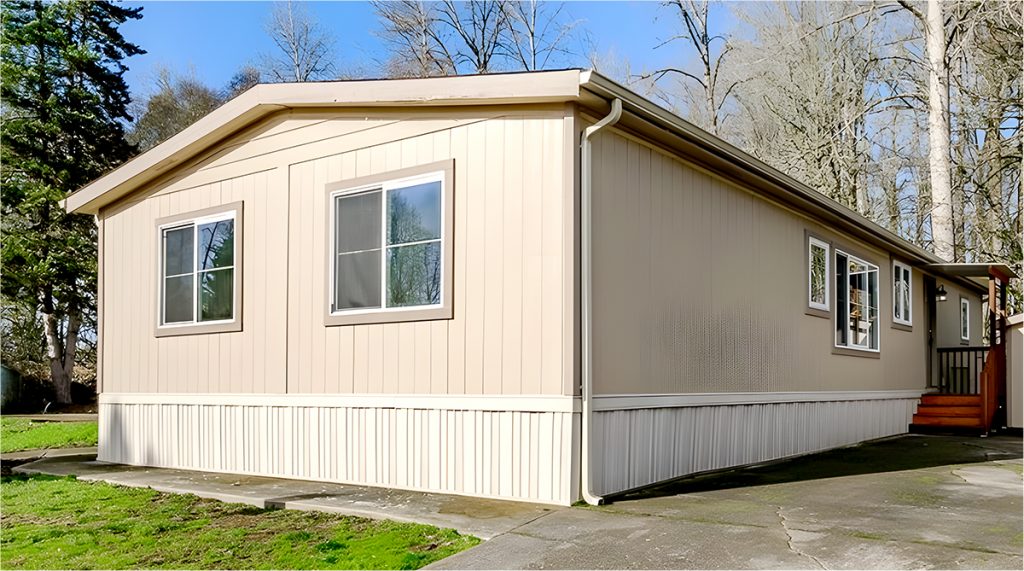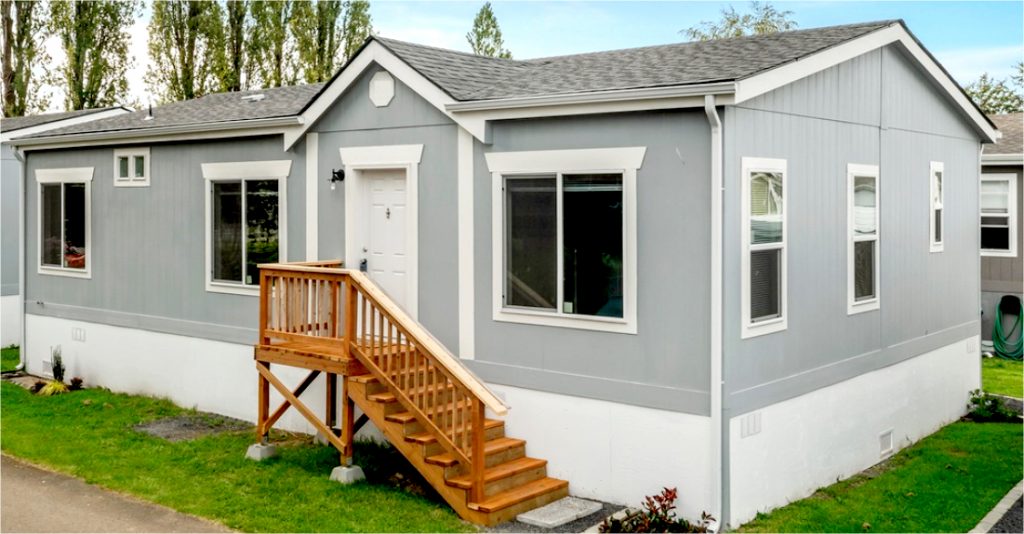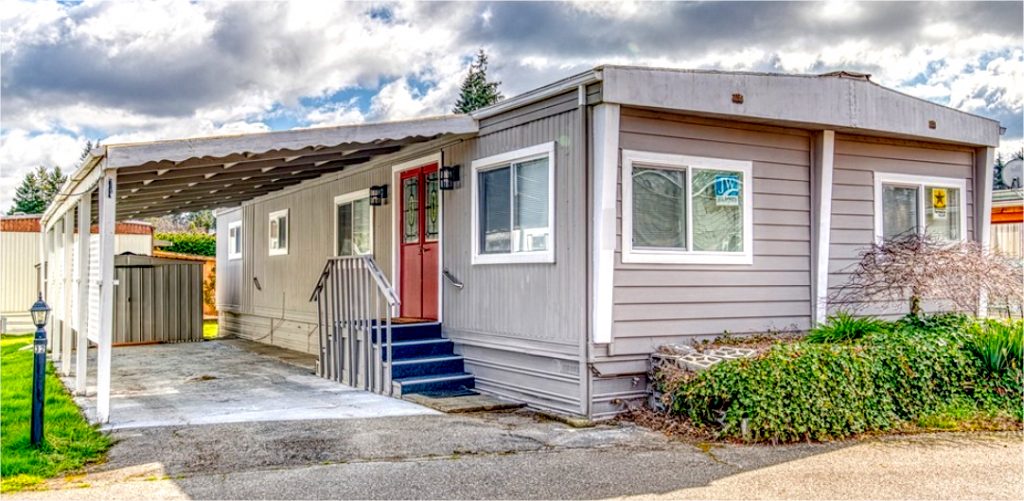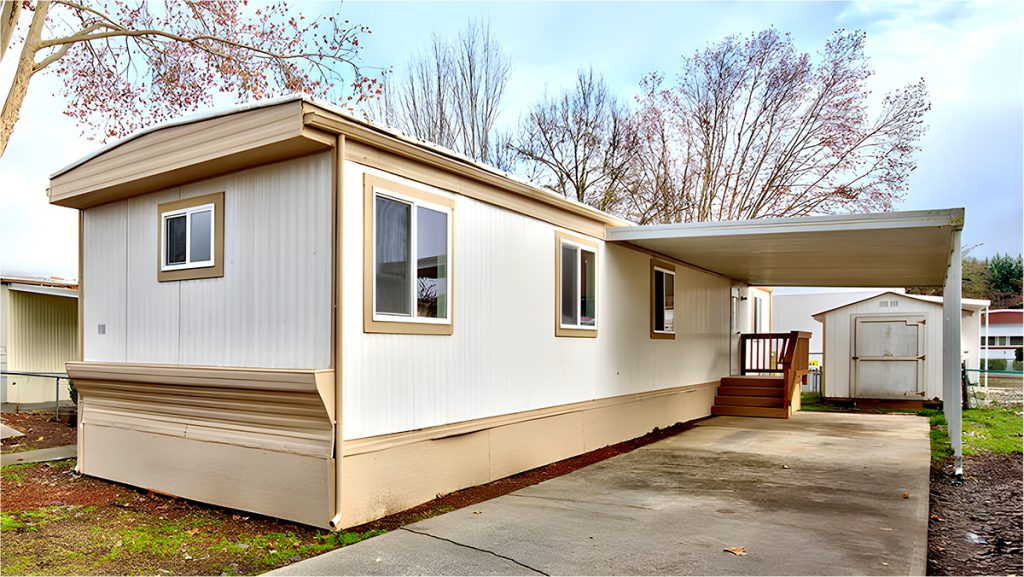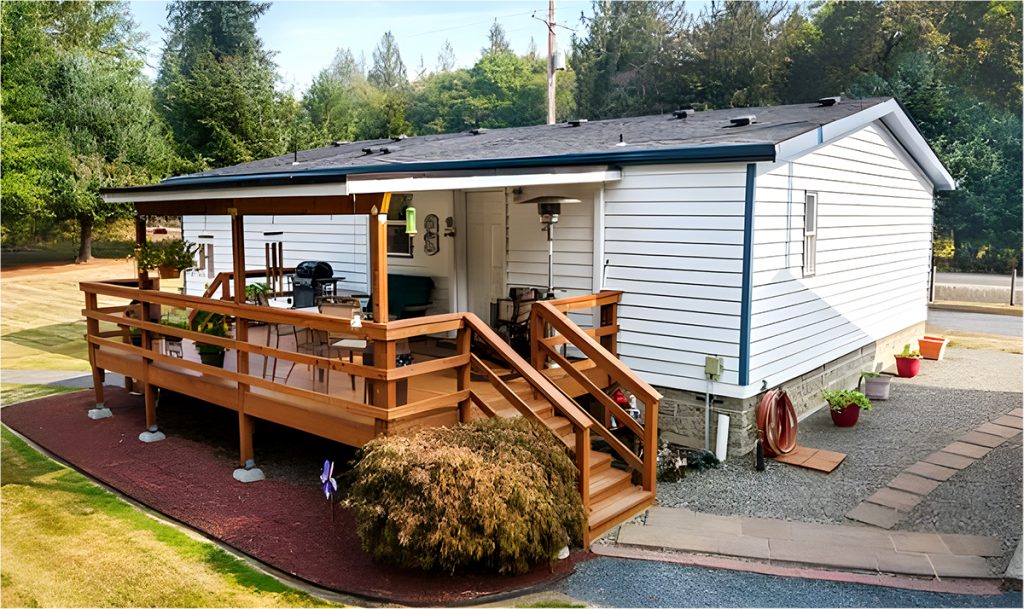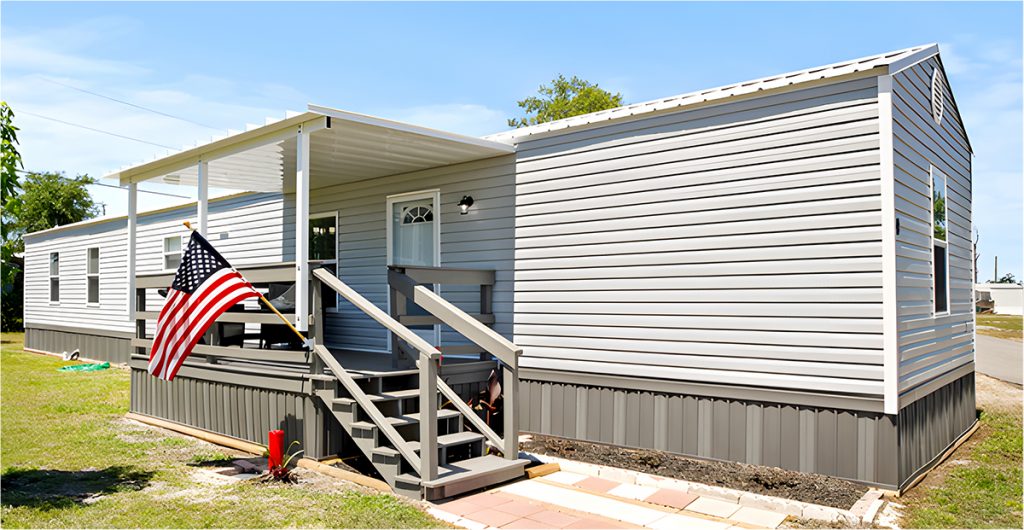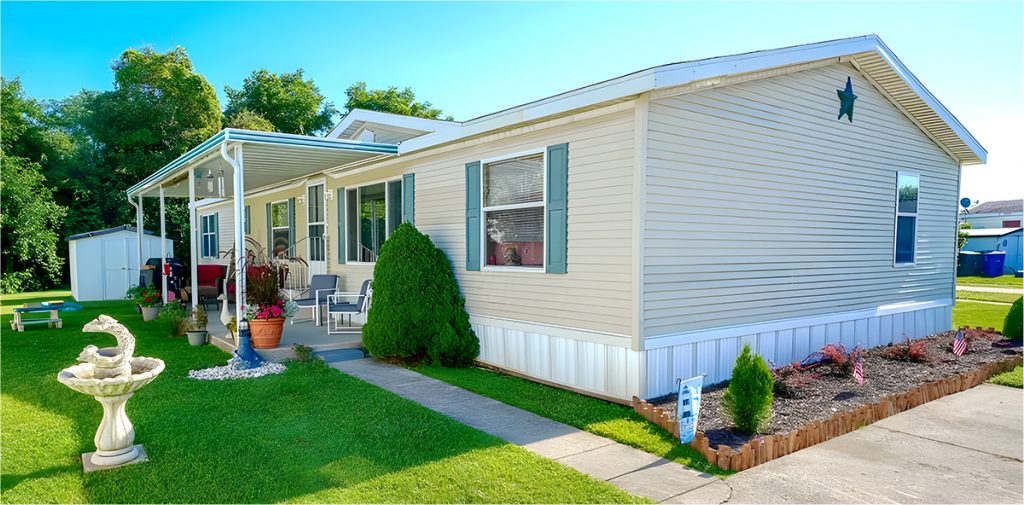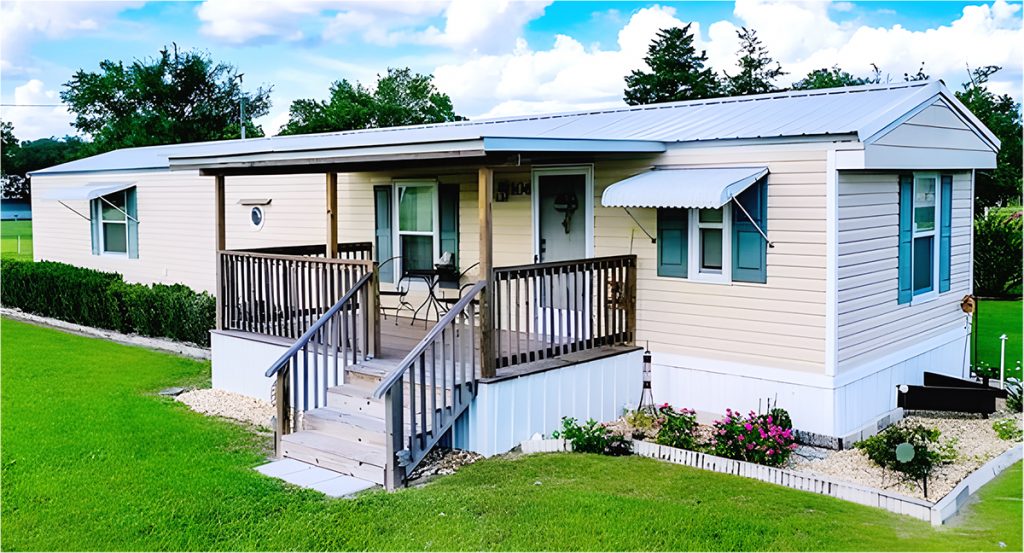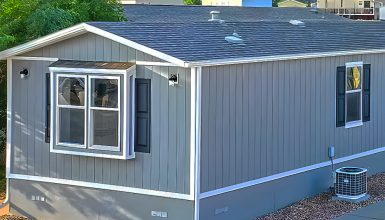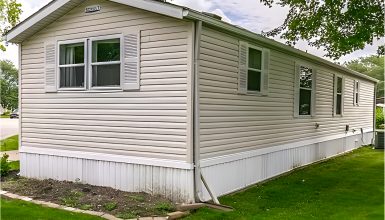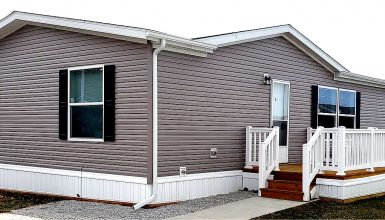A mobile home warranty is like a safety net for your investment. It’s the unsung hero that can save your day—and your wallet. So, in this guide, we’ll break down everything you need to know about mobile home warranties. Trust me, you’ll want to stick around for this.
Section | Summary | Tips |
Defines what a mobile home warranty is and how it differs from home insurance. | Always know what's covered under your warranty versus your insurance. | |
Explores the financial and emotional peace of mind a warranty can bring. | Consider your warranty as a safety net for unexpected repairs and costs. | |
Lists and explains the types of systems, appliances, and structural elements often covered. | Double-check your warranty for specifics; not all warranties cover the same things. | |
Discusses common exclusions from mobile home warranties, like acts of nature or improper maintenance. | Read the fine print carefully to know what is not covered. | |
Breaks down the typical costs and factors affecting the price of a warranty. | Consider the long-term savings versus the upfront cost. | |
Guides you through the selection process, from researching to reading reviews. | Shop around and compare options. The cheapest option isn't always the best. | |
Walks you through the step-by-step process of making a claim on your warranty. | Always call your warranty provider before getting any repairs done. | |
Offers advice and steps to take if a claim is rejected. | Don't give up; reevaluate, gather evidence, and communicate with your warranty provider. | |
Provides insider tips on how to get the most out of your warranty. | egular maintenance and documentation can make all the difference when you need to make a claim. |
What is a Mobile Home Warranty?
Alright, let’s get into it. A mobile home warranty is basically your financial bodyguard. Consider it a promise—a deal between you and the folks who built or sold your mobile home. If something goes wrong, like your roof starts leaking or your AC goes kaput, the warranty covers the costs of repairs or replacements. Pretty cool, huh?
Manufacturer’s Warranty
Now, not all warranties are created equal. There are a few types to know about. First, there’s the Manufacturer’s Warranty. This one comes straight from the people who built your mobile home. It usually covers structural stuff, like walls and roofs, and often lasts for about a year.
Retailer’s Warranty
Next up is the Retailer’s Warranty. You get this from the place that sold you the home. It’s more about the installation and setup. So if your home isn’t properly anchored or the plumbing’s a mess, they’ve got your back.
Extended Warranty
Finally, the Extended Warranty. This one’s optional and kicks in after the other warranties expire. It covers things like appliances and systems, extending the life of your peace of mind.
So why does all this matter? Well, repairs can cost a pretty penny. But with a warranty, you get to sidestep those hefty bills. Plus, a warranty can sweeten the deal for potential buyers if you ever decide to sell. So there you have it—a quick and dirty rundown on a mobile home warranty and why it’s a game-changer.
Why Do You Need a Home Warranty for a Mobile Home?
So, why should you care about a mobile home warranty? Let’s dive in. First off, peace of mind. Imagine it’s a sweltering summer day, and your AC decides to vacation. Stressful, right? With a warranty, you call the service; they send over a pro, and voila—problem solved, no sweat!
Let’s talk money. We all know repairs can drill holes in your budget faster than you can say “unexpected leak.” But a warranty covers you. Whether the water heater is playing hot-and-cold or the fridge is staging a meltdown, you won’t be left holding a big, fat bill.
But wait, there’s more! Say you’re thinking of selling your mobile home down the line. A warranty can be your secret weapon. How? Well, it shows potential buyers that your home is a solid, well-cared-for investment. It’s like putting a big, shiny “Quality Guaranteed” sticker on your front door.
Plus, let’s face it, life gets wild. Juggling work, family, and social life means you’ve got enough on your plate. The last thing you need is to become an amateur plumber or electrician on a random Tuesday night. A warranty takes that hassle off your hands.
So, in a nutshell, a mobile home warranty saves you stress, time, and money. It’s that extra layer of cozy comfort, knowing that your home—your haven—is looked after. And really, can you put a price on peace of mind? I didn’t think so.
Components Typically Covered by a Mobile Home Warranty
Let’s talk about what’s actually covered under a typical mobile home warranty. Consider it the VIP list for your home’s most crucial features.
1. Structural Components
First up: structural components. We’re talking about the bones of your home—roofs, walls, and floors. The warranty covers if your roof springs a leak or you find a crack in the wall. No drama, no fuss.
2. Appliances and Systems
Next on the list are appliances and systems. Imagine waking up in a cold house because the heater’s gone rogue. Or maybe your dishwasher decides it’s too tired to finish the job. With a warranty, these hiccups don’t stand a chance. Heating, cooling, electrical, plumbing—it’s all part of the package.
Now, let’s chat about the kitchen. You know, the heart of your home. Stoves, refrigerators, dishwashers—these key players are usually included, too. So if your oven forgets how to heat or your fridge suddenly turns into a sauna, you’re not stuck eating takeout for a month.
3. Optional Add-Ons
But what if you have a deck or maybe a porch where you love to sip your morning coffee? Good news: Many warranties offer optional add-ons for these spaces. It’s like upgrading to first-class but for your home.
One more thing. Got a washer and dryer? Many warranties let you include those as add-ons because laundromats are no one’s idea of a fun weekend outing.
So there you have it—your guide to what’s typically covered under a mobile home warranty. It’s all about keeping your home running smoothly, from the essentials to the nice-to-haves. And isn’t that what we all want?
What is Usually Excluded?
While mobile home warranties are pretty awesome, they don’t cover everything under the sun. Think of it like a VIP club—you can’t just waltz in wearing flip-flops and expect champagne service.
1. Cosmetic issues
First, let’s talk about the surface-level stuff—paint, décor, and other cosmetic issues. If you accidentally knock a hole in the wall while moving furniture, that’s on you. The warranty’s not going to step in for aesthetic touch-ups.
2. Acts of God
Next, acts of God. Floods, earthquakes, and other natural disasters? Not covered. That’s a job for insurance, my friends. So, if you’re in an area prone to extreme weather, you’ll want to look into that.
3. Improper installation
Here’s another curveball: improper installation and unauthorized repairs. Say Uncle Bob thinks he’s a DIY superstar and tries to fix the plumbing. Don’t expect the warranty to bail you out if he botches it. Always go for professionals when it comes to repairs.
Now, don’t forget the fine print. Some warranties have weird exclusions like “normal wear and tear” or improper maintenance items. So, if your dishwasher starts acting up because you’ve never cleaned it, you might be out of luck.
So, what’s the takeaway? Read the details, know what’s covered and not, and steer clear of amateur repair jobs. While a mobile home warranty is your safety net, it’s not a catch-all solution. But knowing what it does and doesn’t do? That’s the key to a smooth homeowner experience.
The Cost of a Mobile Home Warranty
How much is peace of mind going to cost you? The answer: it varies. But don’t worry, we will break it down so there are no surprises.
First off, the basics. You usually look at a few hundred bucks a year for a standard warranty. Not bad, right? Especially when you think about the thousands you could shell out for emergency repairs.
Now, the price can go up or down depending on a few things. Older homes? Yeah, they might cost a bit more to cover. It’s like how car insurance goes up for older models. It’s just the way the cookie crumbles.
Location matters, too. Just like the cost of living varies from city to city, so does the warranty price. So, if you’re in a ritzy area, expect to pay a bit more.
How about coverage? The more you want to include, the more it will cost. It’s like ordering a pizza. You start with the basic cheese and tomato sauce—your structural coverage. Want pepperoni and mushrooms? That’s your appliances and systems. Extra toppings mean a few extra bucks.
Oh, and the payment plan. Some companies let you pay monthly, while others might want it all upfront. So you’ve got options.
To sum it up, a mobile home warranty is an investment. But it can save you from major headaches and wallet woes. When you do the math, the numbers start to make sense. So go ahead, invest in that safety net. Your future self will thank you.
How to Choose The Best Mobile Home Warranty
So you’re sold on getting a warranty, but how do you pick the best one? It’s like dating—you want the perfect match without the drama. Well, buckle up because we’re going on a matchmaking journey.
1. Research
Step one: Do your homework. Don’t just grab the first warranty that winks at you. Shop around. Compare. The internet is your oyster, so dive in and look up different providers.
2. Customer Reviews
Step two: ratings and reviews. Would you go to a restaurant without checking the Yelp reviews first? Probably not. So do the same for your warranty. Trust the crowd, but also sprinkle in some expert opinions. What are people saying? Any red flags?
3. Perks and Benefits
On to step three: perks and benefits. Some warranties come with sweet extras—like emergency service or a hotline you can call 24/7. It’s the whipped cream on your latte, the cherry on your sundae. Take note of these because who doesn’t love a good freebie?
4. Reputation of the company
Now, the reputation of the company. Are they a flash-in-the-pan or a seasoned veteran? You want a company that’s been around the block and knows the ins and outs of the warranty world.
5. Price
Lastly, the nitty-gritty details. Dig into the fine print. What’s covered, what’s not, and are there any limits? And let’s not forget about the price. Can you pay monthly, or is it a one-time fee?
So that’s it, the roadmap to finding your warranty soulmate. Take your time, weigh your options, and don’t hesitate to ask questions. Remember, this is about your home—where your life happens. Make sure it’s in good hands.
Claim Process: What to Expect
So, you’ve got a warranty. High five! But what happens when it’s go-time when something breaks down? Don’t worry. The claims process usually isn’t a labyrinth of confusion. Let’s walk through it, step by easy step.
Step 1
First off, the issue pops up. Maybe it’s a leaky roof or a rogue dishwasher—no need to panic. Take a deep breath and grab your warranty paperwork. Yep, that stack of papers you stuffed in the drawer? It’s time to pull it out.
Step 2
Ring them up! Most warranty companies have hotlines you can call anytime. They’ll ask for details, so be ready to spill the beans about what’s happening. Give them the facts, and they’ll guide you through what comes next.
Step 3
Now, waiting time. Usually, the company reviews your claim and gives you the green light to proceed. Depending on how swamped they are, this can take anywhere from a few hours to a few days.
Step 4
Next comes the fun part—the fix! The warranty company typically sends an approved service pro to get things back on track. Remember, use their guys, not your local handyman Joe, or you might void your warranty. So let the pros do their thing, and before you know it, you’re back in business.
Step 5
Oh, and there’s often a small service fee, sort of like a co-pay, when you visit the doctor. You pay this directly to the repairperson, so have your checkbook or credit card ready.
There you have it, folks. No sweat, no tears, just a simple process to get your home back to its happy place. And the best part? You don’t have to empty your wallet to do it. So live your best life, and let that warranty work its magic.
What to Do If Your Claim is Denied?
Uh-oh, claim denied? Deep breaths, it’s not the end of the world. There’s usually a way to navigate this little bump in the road. Let’s roll up our sleeves and figure out what to do next.
Step 1
First thing: get the details. Why was your claim denied? Is it something in the fine print you missed? Knowing is half the battle. You can’t fix a problem if you don’t know what it is.
Step 2
Double-check your paperwork. Sometimes, it’s just a simple mistake—a wrong model number or a missed signature. Errors happen, so give your documents a good once-over.
Step 3
If it’s not a clerical error, it’s time for a friendly chat. Reach out to your warranty company. And by chat, I mean a courteous, open dialogue—not a heated showdown. Keep calm, ask for specifics, and see if there’s room for negotiation.
Step 4
Now, you might need to gather some evidence. Photos, maintenance records, or expert opinions can strengthen your case. Consider it your personal “Exhibit A” for your home woes.
Step 5
Didn’t work? Well, there’s still the option of going the formal route. You can file a dispute if you genuinely believe your claim should have been approved. This usually involves writing a formal letter to the warranty company or seeking legal advice.
In a worst-case scenario, you might want to consider switching providers. Hey, sometimes relationships just don’t work out. There are plenty of warranty fish in the sea.
The key takeaway? Don’t throw in the towel just because of one setback. Claims get denied; it happens. But that doesn’t mean you’re out of options. Be persistent, be informed, and take the steps to fight for your home. After all, if you don’t advocate for it, who will?
Tips for Maximizing Your Mobile Home Warranty
You’ve got your warranty in hand, and you’re feeling good. But how do you make the most of it? It’s time to spill the insider secrets for turning that piece of paper into your home’s best friend.
1. Read the manual
First up, read the manual. I know it sounds boring, but knowledge is power. It’ll clue you in on the do’s and don’ts. Remember, you want to play by the rules to keep your coverage legit.
2. Maintenance
Next, maintenance. Keep your home and appliances in tip-top shape. A clean air filter or a regularly flushed water heater goes a long way in avoiding more significant issues down the road. Plus, some warranties require it, so it’s a win-win.
3. Document everything
Third tip: document everything. If you’ve had repairs or service visits, keep those records. It’s your paper trail; it could be golden if you ever need to file a claim. Think of it as the receipt of your home’s life story.
4. Authorized repair
Now, a pro tip. Always, and I mean always, call your warranty provider before getting any repairs done. An authorized repair is a covered repair. So don’t play maverick and hire your neighbor with a toolbox unless the warranty folks give you the thumbs-up.
5. Extra perks
While we’re on the topic, use those extra perks. Some warranties come with cool benefits like discounts on new appliances or emergency services. It’s like having a VIP pass to the home maintenance club. Use it.
6. Renew
Last but not least, renew smartly. When it’s time to renew, don’t just auto-renew without checking for new options or promotions. Sometimes, you can snag a better deal or add extra coverage for the same price.
Conclusion
You’ve got the lowdown on mobile home warranties—from what they are to how to choose one. We dished out tips for making a claim and even gave you the inside track to maximize those benefits. Trust me, a warranty isn’t just another piece of paper. It’s a layer of armor for your home, a safety net for your bank account, and a ticket to peace of mind.

